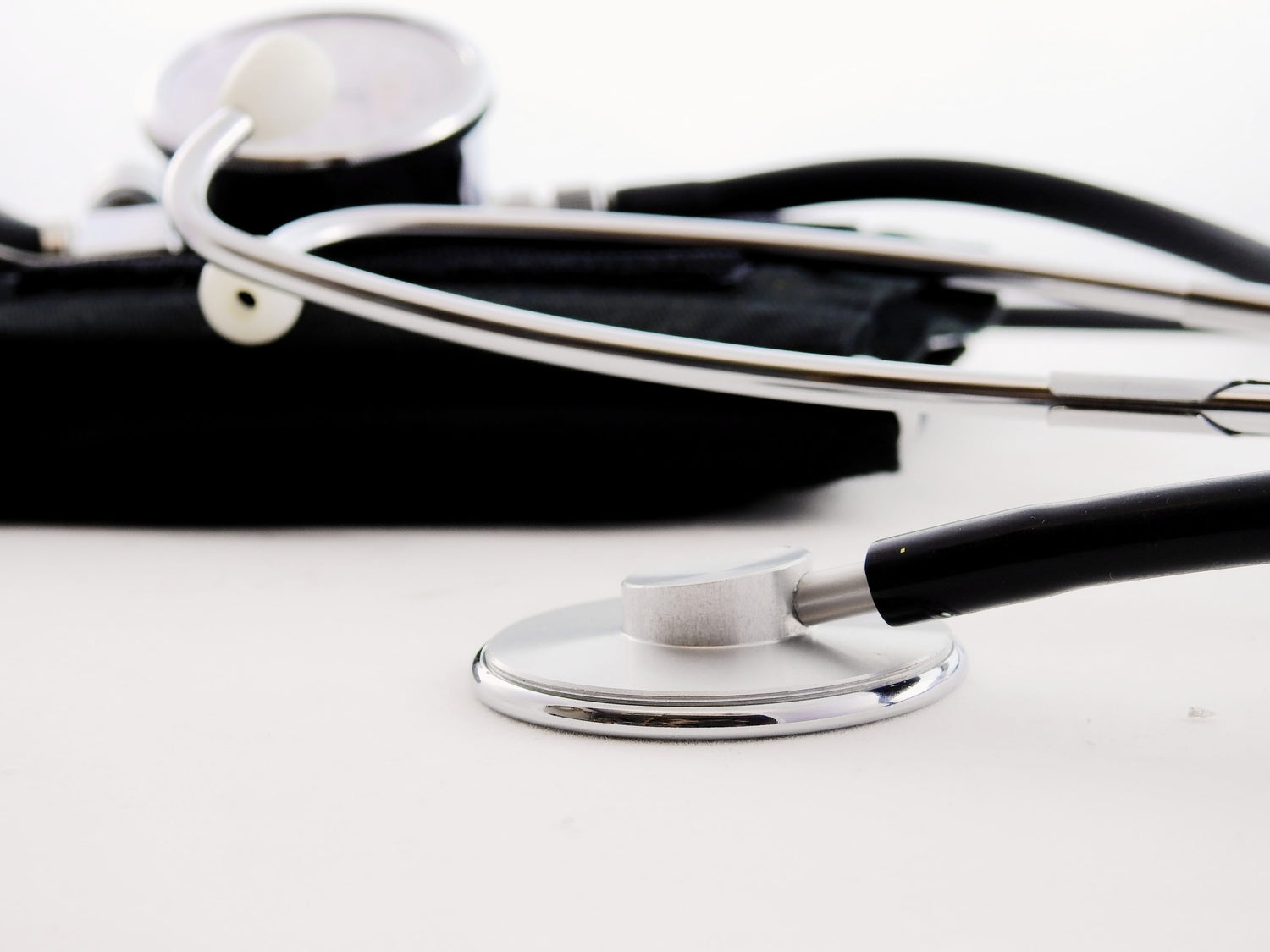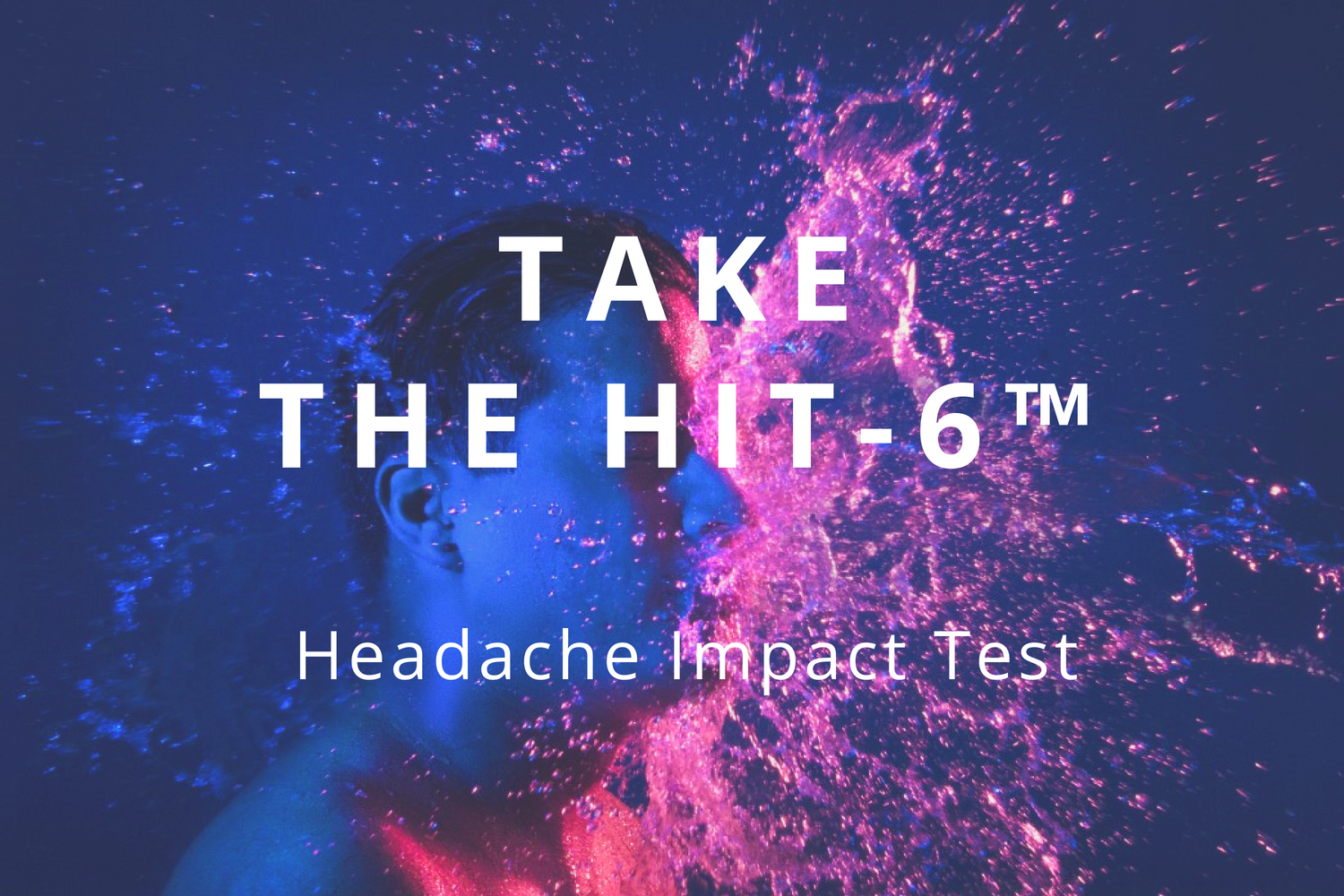It’s called the silent killer.
You may have it and not even know it. Researchers estimate that 1 in 3 adults in the United States have it and only about half of those people have it under control.
This silent killer usually has no symptoms. That’s what makes it so dangerous.
For some people, though, those rules don’t seem to apply. They do have symptoms and they come in the form of headaches – high blood pressure migraines.
These hypertension headaches can be particularly brutal. The headache can manifest itself on the top of the head, squeezing like a vise, or it can be more like a migraine with many of the same symptoms. People often refer to this as blood pressure migraine. Are these headaches related to the increase in blood pressure or is something else going on? A number of doctors may say that individuals do not experience headaches with high blood pressure – those who have experienced it beg to differ.

We conducted extensive research on this type of headache, reviewing more than 10 journals, studies, and scholarly articles to get to the bottom of this issue and hopefully clear up some misconceptions. We also talked to Arif Dalvi MD, MBA, Director of the Comprehensive Movement Disorders Center at the Palm Beach Neuroscience Institute so that he could shed some light on this complex condition.
“Hypertension or high blood pressure can be a direct cause of headaches,” says Dr. Dalvi. “It is called a silent killer because it damages the inner linings of blood vessels over many years which in the long-term leads to a higher risk of heart attacks and strokes. Headaches from high blood pressure have a different mechanism from migraine headaches and the two are not directly related.”
Unlike hypertension, migraine does not originate in the blood vessels. However, hypertension can cause a significant amount of arterial pressure, putting increased stress on the body. This can trigger a migraine attack. By the same token, the migraine can put a lot of stress and worry on the body. This can result in an elevation of blood pressure, although it may not mean that the person has hypertension. The stress can cause an isolated hypertensive episode. Nevertheless, if you experience elevated blood pressure, even while under stress, you should talk to your doctor about it.

If It Isn’t a Blood Pressure Migraine, What Is It?
Very high blood pressure can cause headache, but it does not have the same origin as migraine. Blood pressure headache is usually associated with a hypertensive crisis, such as hypertensive emergency or urgency. Both of these conditions are characterized by dangerously high blood pressure, which is typically a systolic blood pressure reading that is 220 mm Hg or higher and/or a diastolic BP that is 120 mm Hg or higher. The difference is, a BP emergency results in organ damage while a BP urgency does not leave any discernible evidence of organ damage.
At least one study shows that not everyone may experience headaches as a result of high blood pressure. One possible reason for this is hypertension associated hypalgesia, which causes desensitization to stimuli. It is estimated that around 20% of patients in hypertensive urgency experience headache.
Symptoms of a hypertensive headache include:
- Developing during a hypertensive crisis
- Bilateral location, meaning it tends to occur on both sides of the head
- Pulsating or throbbing quality
- Precipitated or exacerbated by physical activity
- Resolves within one hour after the blood pressure returns to normal
While your headache may feel intense enough to be a blood pressure migraine, it likely isn’t anything more than just a really bad headache.
A hypertensive emergency may also include a headache along with other symptoms (indicative of organ damage) which include:
- Dizziness
- Nausea and vomiting
- Weakness
- Confusion
- Loss of sight
- Blurred vision
- Symptoms of stroke
A hypertensive crisis is serious. If you experience any of the symptoms associated with it, with or without headache, check your blood pressure. If it is high (140 mm Hg or higher and/or 90 mm Hg or higher) you should call your doctor. If it is 180 mm HG over 120 mm HG or higher and you experience any of the following symptoms, go to the emergency room or call 9-1-1 immediately.
Serious symptoms that warrant an emergency room visit include:
- Nausea
- Fatigue
- Excessive sweating
- Shortness of breath
- Headache
- Irregular heart beat
- Lightheadedness
- Vision loss or visual disturbance
- Confusion
- Palpitations
Hypertension can be life threatening and critical symptoms should not be ignored. Most people do not experience any symptoms at all until their blood pressure reaches a critical level.

Understanding High Blood Pressure
About 45% of adults in America have high blood pressure. Also known as hypertension, this condition is the most common type of cardiovascular disease. It occurs when the pressure that moves blood through the body is too high or forceful. When blood moves too hard and fast through the arteries and veins it causes damage to them. This can lead to organ damage as well as life threatening conditions like stroke and heart disease.
Blood pressure is measured by two numbers in a single reading. The first number, systolic pressure, is the force or pressure that is in the arteries each time the heart beats. The second number, diastolic pressure, is the force or pressure that is in the arteries when the heart rests between each beat. Normal blood pressure is around 120 mm HG over 80 mm HG (120/80) in adults, but it can become elevated in time of stress or physical exertion. It is also normal for different people to have a different blood pressure “normal.”
People who have a blood pressure that is 130/80 or higher at least twice may have a problem with high blood pressure. When blood pressure is slightly over 120 mm HG systolic or slightly more than 80 mm HG diastolic it is considered to be prehypertension. Approximately 75 million American adults are prehypertensive. However, even at this stage the risk of damage to the brain, heart, arteries, and kidneys is increased.
One of the most alarming aspects of high blood pressure is that there are usually no discernable symptoms to indicate a person is hypertensive or prehypertensive. Because of this it is often referred to as a “silent killer.” The majority of people will not experience any symptoms at all until they are in a hypertensive crisis – and even then they may not have any symptoms. There are no signs or symptoms to alert a person that they could have this dangerous health condition.
The American Heart Association recommends that everyone know their blood pressure numbers and get it checked regularly. This is especially important if you fall into one of the hypertension risk categories.
Migraine and Hypertension Risk
Several studies have identified links between migraine and high blood pressure. One report examined the relationship between women with migraine and hypertension. There were 29,040 women who participated. They did not have hypertension at the onset of the study. They were separated into several categories: active migraine without aura, active migraine with aura, history of migraine, and no history of migraine.
The follow-up, conducted 12.2 years after the study began, showed that of the 29,040 participants, 15,176 experienced incident hypertension. When compared with the women who did not have a history of migraine:
- Migraine with aura – 9% risk increase for hypertension
- Migraine without aura – 21% risk increase for hypertension
- History of migraine – 15% risk increase for hypertension
Anytime that discomfort is present, it can stress the body. Stress, particularly prolonged stress, can cause a person’s blood pressure to rise. The hallmark suffering of a migraine can last for hours, days, weeks, or even longer. This continual stress may indeed lead to hypertension in some people. Likewise, continual stress, such as what the body endures when blood pressure is elevated, may trigger migraine. It is important to note that hypertension does not necessarily cause migraine, but it can be a trigger.
It is important to know your risk for high blood pressure so you can monitor it and avoid complications. The American Heart Association recommends that people who fall into any of these hypertensive risk categories should regularly monitor their blood pressure. Those risks include:
- Family history of high blood pressure such as a parent or close blood relative
- Age. While children can have high blood pressure, the risk for it increases as a person gets older.
- Gender and age.
- Men age 64 or younger are at a higher risk compared to women of the same age
- Women age 65 or older are at a higher risk compared to men of the same age
- African American ancestry (highest risk category for race)
- Chronic kidney disease (CKD). CKD can cause high blood pressure or it can be caused by it
Other high blood pressure risk factors that can be controlled or reversed by making lifestyle changes include:
- Obesity or being overweight
- Consistent or prolonged stress
- Sedentary lifestyle
- Smoking
- Tobacco use
- Regular or heavy alcohol use
- High sodium or unhealthy diet
- Diabetes
- High cholesterol
- Sleep apnea
 Is Headache Associated with Low Blood Pressure?
Is Headache Associated with Low Blood Pressure?
Low blood pressure is at the other end of the spectrum, but it can be just as serious. However, doctors treat it differently. Usually they do not intervene unless it causes symptoms. Where high blood pressure does not have any symptoms unless it is very serious, low blood pressure has several symptoms that indicate its presence.
On the average, a blood pressure reading is low if the systolic is lower than 90 mm HG and/or 60 mm HG diastolic. Symptoms of low blood pressure include:
- Lightheadedness
- Blurred vision
- Difficulty concentrating
- Dizziness
- Nausea
- Syncope (fainting)
- Fatigue
When it comes to headaches though, they don’t seem to be a factor with low blood pressure.
“Low blood pressure can lead to dizziness and fainting,” says Dr. Dalvi. “But it is not commonly associated with headaches.”
When blood pressure drops extremely low it can quickly become a serious health issue, even life threatening. If you experience any of these symptoms you should seek immediate medical assistance:
- Confusion (especially in the elderly)
- Shallow, rapid breathing
- Pale, clammy, cold skin
- Rapid and weak pulse
Blood Pressure Medication and Migraine
It is not unusual for a person who has both migraines and hypertension to begin taking their blood pressure medication and find that their migraines improve. Interestingly, some of the same medications that are used to lower high blood pressure are also often prescribed as preventative migraine medications. This does not necessarily mean that you have a blood pressure migraine or that your migraine is related to your hypertension. It just means that the medication can effectively address both issues.
“A class of blood pressure medications called beta blockers is one of the more effective methods of reducing frequency and severity of migraine headaches,” says Dr. Dalvi. “Medications in this category include propranolol and timolol both of which have been approved for migraine prevention by the FDA. However, they should be avoided in patients with asthma, diabetes or heart block. These medications reduce the activity of the sympathetic system but their exact mechanism in migraine prevention is unknown.”
These are not perfect drugs though, despite the possibility that they can treat both hypertension and migraine. At least one study showed an increased risk of mood disorders like depression among patients taking beta blockers. This should not dissuade you from considering these medications, but if you are prone to depression you should talk to your doctor before starting these types of medications.
Treating the Blood Pressure Headache
Blood pressure headaches can be extremely uncomfortable. It is important to know how to manage them. Dr. Dalvi offers this advice,
“For headaches from high blood pressure (hypertension) consulting with a family physician for appropriate blood pressure medications is essential. High blood pressure should not be left untreated due to the long-term damage it can cause in terms of increased risk of stroke or heart disease. Other organs in the body including kidneys and the retina of the eyes can also be affected. A very high blood pressure requires emergency treatment to avoid catastrophic results. For migraine prevention in addition to beta blockers other medications that are used include seizure medications such as topiramate and valproic acid, which have been found to reduce the severity of migraine headaches as well. For treatment of acute migraine headaches ibuprofen or similar drugs are often used but after consulting with their physician a specific migraine treatment belonging to a category of medications called the triptans can also be used. Sumatriptan is the drug in this category that is most commonly used. Here are some non-pharmacological techniques that help alleviate headaches:
- Make sure you are hydrated by drinking water
- Lay on your back and prop your feet up so that they are above your heart
- Take deep, regular breaths, breathing in through your nose and out through your mouth
- Close your eyes and concentrate only on the breathing
If you still have a headache, you may want to take some aspirin or acetaminophen. You should avoid naproxen sodium, ibuprofen, or ketoprofen because these can actually raise your blood pressure. Before you take anything for your blood pressure headache, you should ask your doctor.
You should also be very mindful of what medication you are taking, how much, and how often. If you take pain medication on a regular basis, whether it’s prescription or OTC, you could be putting yourself at risk for rebound headaches, also known as medication overuse headaches. Continual or prolonged use of many medications can cause the drug to have counterproductive effects and actually make things worse. This is a frequent problem that people with migraines face on a regular basis.
It is also worth noting that if you have migraines and take medication on a regular basis you should check your blood pressure regularly as well. That way, if your medication is raising your blood pressure it can be caught and treated early. Some people can take a medication and never have a problem while other people experience an increase in blood pressure levels. It isn’t worth the risk, especially when it can often be treated with lifestyle modifications.
A word to the wise, always read the package insert on any OTC medication you take. Look for any warnings about blood pressure as well as drug interactions. If you aren’t certain, ask your doctor or pharmacist.

Talking to Your Doctor about Your Blood Pressure Headaches
If you suspect you have high blood pressure, you need to talk to your doctor to get a formal diagnosis so that you can begin treatment. This is particularly important if you have blood pressure headaches because that can signify a more serious problem. If you are having migraines that also warrants a conversation with your physician because they can help you find a treatment plan.
Some questions to ask your doctor include:
- What can I do when I get a blood pressure headache? When should I seek emergency medical treatment?
- Should I get a home blood pressure monitor? What kind should I get?
- How often should I check my blood pressure?
- How high is too high? Too low?
- What changes should I make to my lifestyle to get better control of my hypertension or migraine?
- What foods can I eat? What should I avoid?
- Can I exercise? How much? What are signs that I should stop?
- What kind of medication are you prescribing to me?
- Will this medication help my headache or make it worse?
It is very possible that making lifestyle modifications, such as cutting out certain foods, to gain control of your hypertension can also help minimize or prevent your migraines. Likewise, treating your migraines by eliminating known lifestyle triggers can also help your hypertension. Although the two conditions may not be directly related, it is possible that certain behaviors or diet could be triggering one or both. This is why it is so important to be completely transparent with your doctor so that he or she can advise you about things you may be doing that could be causing your problems.
Dr. Dalvi says, “Even before discussion of appropriate medical treatment the patient and the physician should have a discussion regarding lifestyle measures that can dramatically reduce the severity and intensity of the headaches. It is very helpful if the patient tracks the severity and frequency of their headaches on a calendar in the form of a headache diary. They should also try to identify any food triggers for example chocolate, wine, caffeinated drinks, or foods containing MSG. Good sleep hygiene is also essential to reducing the severity of migraine headaches. Regular exercise can also play a preventative role. Avoiding fatty foods and increasing fruits and vegetables in the diet can also have a preventative effect.”
Emerging Treatment for Headache
There are two treatments for hypertension that are currently in clinical trials. When a treatment effectively manages hypertension it can also help to manage blood pressure headaches. The Symplicity Spyral device is a multi-electrode renal denervation system and the estimated primary completion date is April 2020 and the estimated study completion date is March 2023. The Mobius HD, also known as CALM 2, is another device that regulates blood pressure when inserted in a primary artery that is in the neck, called the carotid sinus. The estimated primary completion date is May 2021 while the estimated study completion date is May 2026. It will be a while before either of these blood pressure treatments are released to the public, but they do show promise.
Dr. Dalvi also pointed out a brand new category of migraine medication that has recently come to market in the past couple years.
“An exciting area of migraine research is a new class of medications called calcitonin gene-related peptide,” he says. “CGRP is found in many organs of the body including the brain. When it is released around blood vessels it can cause expansion of the vessels and inflammation. This is a mechanism for migraine headaches. These molecules are being looked at both for prevention of headaches as well as reducing acute attacks. One advantage of the GCRP monoclonal antibody medications is that they are prescribed every two weeks, making compliance much easier. ”
Just as there is no single blood pressure medication that works for everyone, there is no single migraine or headache medication that works for everyone. Most patients try several different medications before they find something that works. It takes patience and perseverance. As more research is conducted on these conditions and doctors better understand them, the greater the likelihood that more effective treatments can be developed.

Controlling Migraine and High Blood Pressure
If you are having frequent headaches or if your headaches seem to coincide with elevations in your blood pressure, you need to talk to a doctor. Often, keeping your blood pressure under control will also keep your headaches under control. You should talk to your doctor about your condition if you have migraines, whether you have high blood pressure or not.
“Appropriate treatment of headaches requires an accurate diagnosis. The correct choice of medications is based on the diagnosis,” says Dr. Dalvi. “It also means adjusting appropriate lifestyle measures including diet, exercise and sleep hygiene to reduce the risk of headaches. Since headaches can be a warning of more severe underlying disease states, it is important to consult with a physician in a timely manner.”
As with many conditions, hypertension, high blood pressure headaches, and migraines typically start with changes in lifestyle, and that can make all the difference. It isn’t always a cure, but for many people every single day, changing a few of their habits and behaviors causes significant changes in their bodies – for the better.






